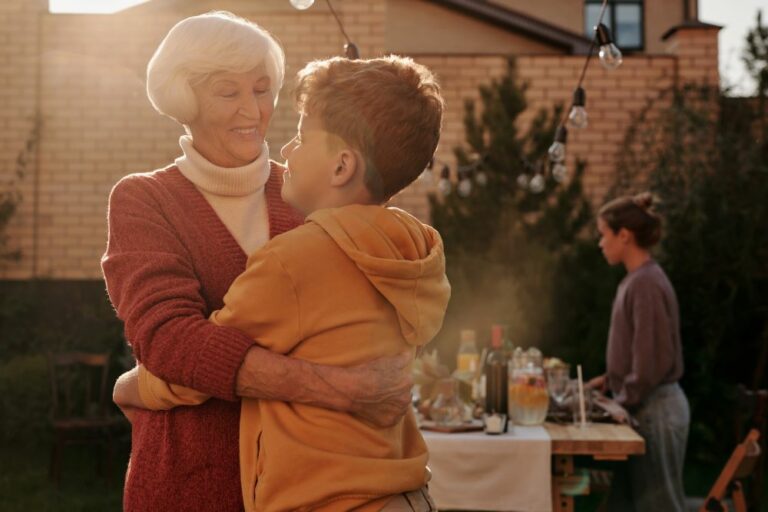Over half of the over 65s provide financial support to their family’s younger generations

One quarter of these funds go towards leisure and holidays while 22 percent contribute to education-related costs.
Another 23% provide support to relatives and 17% help with daily tasks like driving, shopping, and other errands for younger people.
Research of 2,100 adults in the UK found that younger generations are grateful for support. 76% of those aged 18-40 said that older family members were very or somewhat important to them.
Nick Walker, Edwards Lifesciences UK Ireland, was the one who requested the research and produced the report. Unifying Generations report, said: “The report sheds light on the pivotal social and economic contribution of the senior population and demonstrates the importance of protecting their health and well-being.
“It’s interesting to compare and contrast the views of both younger and older generations, to show just how much value people 65 and over are providing.
“The UK’s population is ageing according to Age UK, one in five people be over 65 by 2030.
“While an ageing society is often thought of as a problem, our report shows there are lots of positives to be found.”
The study also highlighted many benefits of intergenerational interactions.
Younger people believe that listening and giving advise (45%), companionship (38%) and sharing historical or cultural information (31%) are the most valuable skills older adults can offer.
A further 24% of younger respondents believe that mentoring or educational programmes offered by the national or local government would be beneficial to them in their relationships with their elders.
Change intergenerational perceptions
The older generation is aware of the need to improve digital skills. 40% said they would prefer to learn technology and digital media from people aged 40 and over.
One of the most positive themes in the report was the willingness and ability to improve intergenerational relationships.
People of all ages believed that closer relationships between generations were a good thing (76%), and a bad thing (77%).
In fact, just half of respondents had a friend who was of a different generation. 37% said they were open to having one.
The report also showed that COVID-19 has had a significant effect on intergenerational relationships. In fact, 37% of respondents believe that younger and more senior people have become more distant since the pandemic.
It calls for three recommendations to improve intergenerational relationships, by changing the perceptions of the UK’s over-65s, supporting mentoring schemes and introducing digital training for older people.
Derek Thomas, MP for St Ives, said: “I wholeheartedly endorse the report’s three recommendations.
“By changing perceptions of older people, we celebrate and recognise their pivotal contribution, and encourage even more.
“New mentoring schemes will help our younger people to make greater strides educationally and vocationally, while digital training for older people will reduce isolation and keep family and communities much closer.
“There is so much to be gained by bringing our generations closer together.”
[Denial of responsibility! newsanyway.com is an automatic aggregator of the all world’s media. In each content, the hyperlink to the primary source is specified. All trademarks belong to their rightful owners, all materials to their authors. If you are the owner of the content and do not want us to publish your materials, please contact us by email – at newsanyway.com The content will be deleted within 24 hours.]
